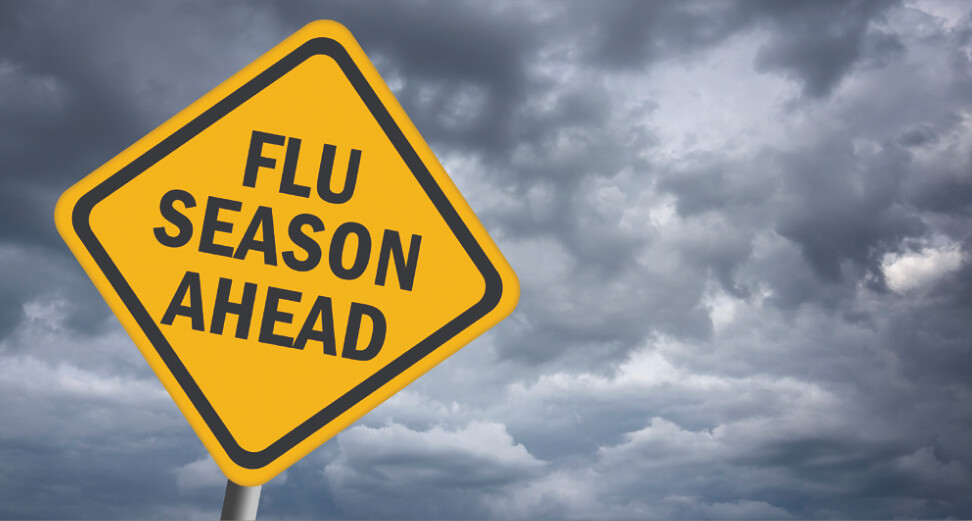Source: Time Magazine
More people than are commonly thought to suffer from some degree of anxiety disorder. You may be wondering what is the operational (psychiatric) definition of anxiety. No worries, I will get to that shortly. Recently, as in the past two years, research has shown that politics has played a major part in increased anxiety. How? A scientific study published in the Journal 'Science' titled "The effect of partisanship and political advertising on close family ties" showed that on average, families spend fewer number of hours together as a result of the division based upon differing political views in the current political climate. Remember, the study was conducted after the election. The current political climate has caused noticeable adverse changes in family dynamics. How does one differentiate between anxiety based on events (politics) and anxiety which is inherent to each of us to some degree.
What is Anxiety?
Anxiety is commonly viewed as a sharpening tool to keep us alert to any threats -- a survival mode. For a large percentage of people, anxiety is anything but a 'sharpening tool' and more often associated with feeling of 'excessive nervousness'. Further, a certain amount of people suffer to a large degree from anxiety on a daily basis from carrying out their normal daily lives. Which is concerning to say the least. In order to understand the disorder which inflicts so many people without notice, an operational definition of General Anxiety Disorder is needed.
I just finished a book titled "The Dangerous Case of Donald Trump," (organized and edited by Dr. Bandy X. Lee) -- a compilation of written works describing the symptoms which contribute to the informal diagnosis of President Donald J. Trump. By discussing possible attributes/qualities of different personality and other mental health disorders, the contributors discuss the problems facing the United States along with President Trump. Without violating the 'Goldwater Rule', the contributors focus on what electing a person with disorders says about the electorate (you and I).
As I just mentioned, the book had a number of mental health professionals contributing to the book. The author who I would like to highlight wrote a chapter titled "Trump Anxiety Disorder" whose name is Jennifer Contarino Panning. She is a licensed psycotherapist in Clarkston, Michigan. The excerpts below are shown to help introduce an operation definition of General Anxiety Disorder along with distinguishing the newly emerging Trump Anxiety Disorder. First, lets start with a definition of General Anxiety Disorder:
It is important to differentiate generalized anxiety disorder and Trump anxiety disorder. The "Diagnostic and Statistical Manual of Mental Disorders" (5th ed.) (commonly referred to as DSM-V), is widely used among mental health professionals (American Psychiatric Association 2013). It describes generalized anxiety disorder (GAD) as characterized by excessive, uncontrollable, and often irrational worry--that is, apprehensive expectation about events or activities. This excessive worry often interferes with daily functioning, as individuals with GAD typically anticipate disaster and are overly concerned about everyday matters such as health issues, money, death, family problems, friendship problems, interpersonal relationship problems, or work difficulties. Individuals often exhibit a variety of physical symptoms, including fatigue, fidgeting, headaches, nausea, numbness in hands and feet, muscle tension, muscle aches, difficulty swallowing, excessive stomach acid buildup, stomach pain, vomiting, diarrhea, bouts of breathing difficulty, difficulty concentrating, trembling, twitching, irritability, agitation, sweating, restlessness, insomnia, hot flashes, rashes, and an inability to fully control the anxiety.
The author goes onto state that these symptoms must be consistent and ongoing to be formally diagnosed by a physician for at least 6 months. Moreover, that according to the National Institute of Mental Health, over 7 million Americans suffer from General Anxiety Disorder within a year....Wow! Each of us have felt a sense of anxiety at some point in our life. Whether that be preparing a work project or presenting a speaking event to a large audience. That is typically normal anxiety associated with stress of planning. Some people often have difficulty distinguishing between stress and anxiety. Regardless, understanding the causes of anxiety or stress are important.
Which is why after certain events in time, new anxiety can be sourced to a different cause. Although, the phenomenon on a larger scale calls for a different type of analysis. Further, the type of anxiety causing issue at a national scale has been traced to a certain number of events. These events have been surrounding the campaign/election of President Donald J. Trump. Below, the differences along with the definition of Trump Anxiety Disorder will be highlighted.
What is Trump Anxiety Disorder?
As I mentioned above, suffering from General Anxiety Disorder is terrible enough on a daily basis. Now, add in the unknown quantity of Trump Anxiety Disorder. What is the difference between the two anxiety disorders. Let's define it. The author of the above excerpt, Dr. Jennifer Panning, goes onto describe Trump Anxiety Disorder in the same chapter as:
Symptoms associated with Trump Anxiety Disorder include: feeling a loss of control; helplessness; ruminations/worries, especially about the uncertain sociopolitical climate while Trump is in office; and a tendency toward excessive social media consumption. In fact, the polarization that this has created has caused a deep divide between families and friends of differing political beliefs. Trump's specific personality characteristics, and his use of psychological manipulation tools such as gaslighting, lying, and blaming, are described as contributing factors to Trump Anxiety Disorder.
Trump Anxiety Disorder, albeit not a formal diagnosis, differs from GAD in regard to several measures. One difference is in the furation of time for the symptoms to develop. The volatile events leading up to the 2016 election (i.e., false news reports, Comey's report questioning Clinton's ethics) were challenging in themselves, but many Americans were reassured by multiple polls (e.g., Silver 2016) predicting that Hillary Clinton would win the election in a landslide. This led to a sense of shock and disbelief after Trump was announced as president of the United States.
An additional symptom of Trump Anxiety Disorder is that symptoms are directly related to the uncertain sociopolitical climate. An elevated stress level when reading articles about numerous topics--the Muslim ban, the threat/promise of disbanding the Affordable Care Act, tensions between the United States and North Korea, the possibility of Russia's having interfered in the 2016 election and Russia's financial connection to Trump, the US/Mexican wall, immigration issues, the defunding of environmental groups such as the National Park Service and the Environmental Protection Agency, and the defunding of medical research--is strong. An individual impacted by Trump Anxiety Disorder may be directly impacted by one of these singular issues, have multiple concerns, or worry about the future democratic state in America given these issues. Therefore, the ruminative worry associated with an anxiety disorder is specific to these events (Clarridge 2017).
Wow! After reading the above excerpt have you ever suffered from a small amount of Trump Anxiety Disorder? I can easily see myself suffering from a fair amount of the same underlying attributes/sources defined under the Trump Anxiety Disorder. Have you? Many of the students from our university are showing signs of suffering from symptoms of Trump Anxiety Disorder. On a larger scale, people around us are showing signs of symptoms too -- which is completely concerning.
Conclusion...
If you have ever had an anxiety attack or even felt a moderate amount of anxiety, I feel for you. The symptoms above are real and have been felt by me at one point or another in my graduate career. To have the added stress or symptoms associated with Trump Anxiety Disorder are even more concerning. Especially since the latter anxiety is controllable -- he could have been not elected into office. Instead, we have what we have and have to deal with what we have.
The first step in dealing with anxiety without any outside influences is to identify triggers and find solutions. Once the triggers are known, then solutions can be found. But with the added anxiety associated with Donald Trump is unfair. Although, now with the election over and two years into the administration, the least we can do is to either ignore television and the online world all together. Or, we can try to understand and move onto find solutions to deal with the current situation. We might not be in control of other's actions, but we are in control of our own. Distinguishing between normal anxiety and anxiety associated with Donald Trump will be beneficial in the future.
Related Blog Posts:
NIDA Director Nora Volkow: How Health Communicators and Journalists Can Help Replace Stigma with Science

